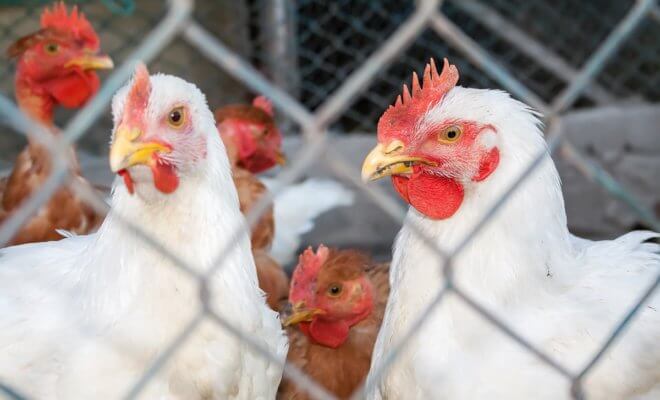Food
Chickens Raised in India Heavily Dosed with Strongest Antibiotics: Report

Representational Image
Photo: Bigstock
India exported 44.80 crore kg poultry products worldwide in 2016-17.
Chickens raised in India have been injected with doses of the strongest antibiotics called colistin, according to a report by the Bureau of Investigative Journalism, which also claimed that India is the epicenter of the global drug resistance crisis.
Tonnes of thousands of Colistin is shipped to India and other countries for consumption as a growth promoter for chickens raised for India.
One of the companies supplying Colistin in India is Venky’s, which also supplies chicken to fastfood chains such as Domino’s, KFC, Pizza Hut and McDonald’s. The company also sells its products in the United Kingdom. Venky’s-branded colistin — Colis V — is reportedly easily available over the counter whereas one can get the antibiotic in Europe only when a vet prescribes it for sick animals.
“Colistin is the last line of defense,” said Timothy Walsh, a professor of medical microbiology at Cardiff University, who is also an adviser to the UN on antimicrobial resistance, according to the report. “It is the only drug we have left to treat critically ill patients with a carbapenem-resistant infection. Giving it to chickens as feed is crazy.”
“Colistin-resistant bacteria will spread on the chicken farms, in the air surrounding them, contaminate the meat, spread to the farm workers, and through their feces flies will spread it over large distances,” he added.
The finding is worrying since India is a food exporter and there is a chance that it affects drug resistance in humans worldwide, which can prove fatal.
According to the Ministry of Commerce & Industry, India exported 44.80 crore kg poultry products worth $79,327,727 in 2016-17. This data doesn’t include any other kind of meat, which can also be affected by drug resistance.
Colistin, called the “last hope” antibiotic, is meant for patients who are resistant to almost all other drugs. The World Health Organization has said that use of such antibiotics should be restricted since using it in farming can increase chances of developing drug resistant bacteria.
Researchers have found that the spread of the drug-resistant gene, mcr-1, is easy since it can be transferred within and between species of bacteria. From chicken to even water, Indians are prone to consume contaminated products since open defecation is still a major problem in the country.

